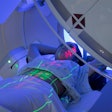Patients' lack of English literacy and their employment status do not contribute to delays in head and neck cancer diagnoses -- in fact, quite the opposite, according to a presentation by researchers from New York University (NYU) Langone Medical Center at the American Society of Clinical Oncology annual meeting this week in Chicago.
Diagnosis and management of squamous cell carcinoma of the head and neck (SCCHN) involves a multidisciplinary approach. But navigating through a public hospital and the involved services often results in diagnostic delays. The NYU researchers set out to quantify provider delay: the time between the first contact with a healthcare provider and the time the diagnosis is confirmed by biopsy.
Using data from 117 patients diagnosed with SCCHN between 2007 and 2009, they performed univariate analysis to examine associations between provider delay and language (English or non-English), employment, presence of partner, gender, ethnicity, age, cancer subsite, staging, number of comorbidities, number of tobacco pack years, and history of alcohol dependence.
The researchers found that the mean provider delay for all patients was 67.3 days, with a significant difference in two characteristics:
- Provider delay was significantly shorter for non-English speakers than English speakers.
- There was a trend of shorter provider delay when patients were unemployed compared with employed patients.
"These results counter the notion that the lack of English literacy and unemployment present disadvantages to the patient," the researchers concluded.
Future analyses will focus on the role of social support and interventions to reduce provider delay, they added.



















